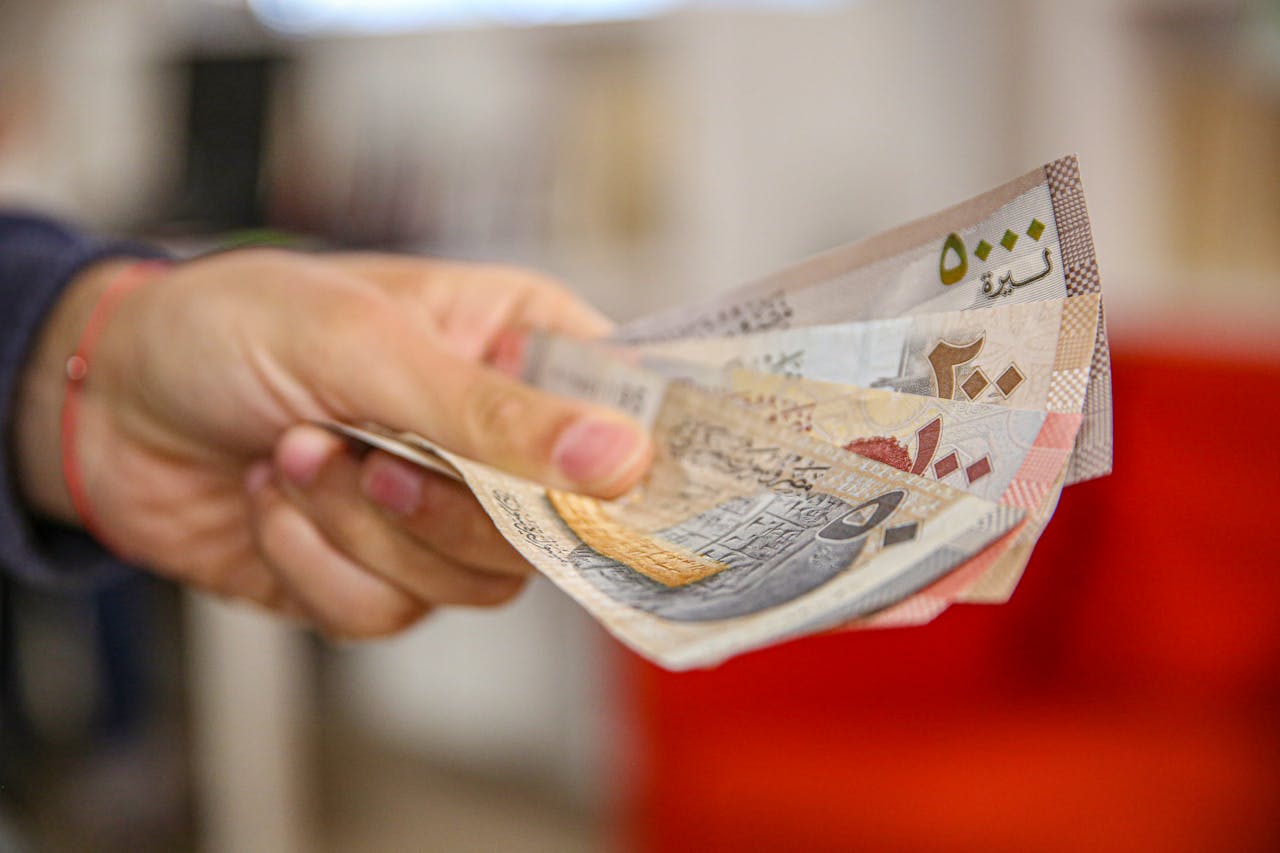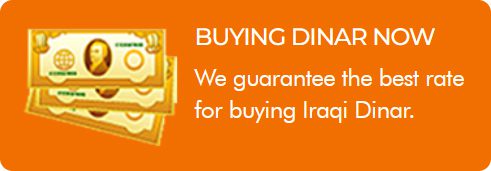Can the Iraqi Dinar Navigate Through Currency Volatility and Black Market Influence?

The landscape of Iraq’s economy portrays a currency in a flux—The Iraqi Dinar—continually grappling with exchange rate volatility and seemingly unsanctioned black market activities. These dynamics have cast a shadow over Iraq currency, cultivating an atmosphere of unpredictability for consumers and businesses alike. Historically, this instability manifests as abrupt appreciations of the US dollar against the dinar, followed by periods of lethargic depreciation.
The official exchange rate, firmly set by the Central Bank of Iraq (CBI), contrasts sharply with rates found on the parallel market. In scenarios not uncommon, many currency exchange outlets blatantly sidestep CBI’s regulations. This defiance introduces a broader disparity between official and market rates, exacerbating the situation further.
As of mid-May, the chasm between the official cash selling rate of 1,305 dinars per dollar and the black market’s rate of approximately 1,450 dinars per dollar, with peaks hitting 1,600 dinars, underscores a significant challenge. Conversely, for international remittances, the rate slightly inclined to 1,a310 dinars.
Given these challenges, the Iraqi authorities have pivoted towards implementing control measures aimed at tightening the reins on foreign exchange transactions. These include mandates for conducting domestic commercial activities in dinars and intensifying scrutiny on international remittances—efforts aimed at remedying the prevailing disparities.
Could Floating the Dinar Be the Antidote?
The pulsating debate around floating the Iraqi dinar brings forth divergent viewpoints. Some economists advocate for a bold leap towards currency “flotation”, envisioning a scenario where the dinar’s value is determined by market forces rather than the existing peg to the dollar. This proposition, while addressing the twin challenges of volatility and black market premium through initial depreciation, hinges on its potential to foster long-term exchange rate stability.
Mudher Saleh, the financial advisor to the Prime Minister, echoes a sentiment that transitioning to a floated currency could potentially align with the economic fabric of Iraq, heavily influenced by oil exports and foreign currency reserves. However, Saleh elucidates a critical caveat; this strategy might not seamlessly transpose onto an economy predominantly regulated by governmental sectors.
The Road Ahead: Risks and Possibilities
The trajectory towards floating the Iraqi dinar brims with complexities. Saleh cautions about the probable dominance of a “limited number of speculators” in the absence of a central mechanism to stabilize foreign currency supply. This situation could spiral into “inflationary expectations-generating forces”, unsettling the very equilibrium the strategy intends to establish.
Moreover, the absence of a definite exchange rate post-flotation, combined with anticipatory inflation, forewarns of monetary policy interventions that may not necessarily culminate in the desired equilibrium, postulating a scenario of significant depreciation of the dinar’s value in the face of uncontrolled market forces.
The Iraqi dinar, amidst these circumspections, stands at a crossroads. The discourse around adopting a “managed float” system surfaces, proposing a middle ground that allows market flexibility while retaining some degree of CBI control. This nuanced approach is rooted in the philosophy of maintaining stability without relinquishing complete control to unpredictable market dynamics.
The Broader Economic Context
Iraq’s status as a country with one of the world’s largest oil reserves, estimated at 145 billion barrels—and ambitions to stretch beyond 160 billion—highlights the centrality of oil to its economy. The intricacies surrounding the dinar’s stability and its exchange rate dynamics are inextricably linked to Iraq’s broader economic policies and its global economic engagements, particularly in terms of oil exports.
The dialogue extends to the role of external factors such as compliance platforms and administrative controls on transfer movements. These externalities shape the landscape within which the Iraqi dinar navigates, underscoring a complexity enriched by global economic policies, sanctions, and Iraq’s endeavor to align with international standards.
Intrinsic to this narrative is Iraq’s effort to modernize its financial sector, exemplified by the adoption of the SWIFT electronic transfer system aimed at enhancing dollar usage monitoring. Recognizing the highest reserve levels in history, capable of covering imports for up to 16 months, Saleh points towards a resilient economic foundation poised to address these currency challenges.
Currency in Iraq, A Balancing Act
At the heart of the Iraqi Dinar’s tale is a balancing act—between embracing the potential liberation a floated currency offers and grappling with the inherent risks such an endeavor entails. The discourse is rife with possibilities, each path laden with its own set of implications for the Iraq country currency’s stability and the broader economic landscape.
As calls for redefining the Dinar’s course reverberate, the backdrop of Iraq’s rich oil reserves and its transition towards financial sector reforms paints a multifaceted picture of potential and caution. The conversation around the dinar’s value, therefore, extends beyond mere currency mechanics to encompass broader questions of economic policy, global integration, and the pursuit of stability in a fluctuating global context.
In the dinar’s journey, stakeholders continue to evaluate the merits of stability versus flexibility, control versus market-driven dynamics. While the Central Bank of Iraq has not yet confirmed a revaluation, the discourse suggests a landscape ripe for transformation, contingent on navigating the myriad economic and policy-oriented intricacies that define Iraq’s financial identity.
How Can Dinar Exchange Assist?
Amidst these discussions and potential shifts in currency policy, Dinar Exchange positions itself as a valuable resource for those navigating the intricate dynamics of the Iraqi currency market. Our platform offers updated information and insightful analysis, presenting a broader perspective on how changes in the dinar’s value could unfold. While the possibility of an increase in the Iraqi dinar’s value remains speculative, with the Central Bank of Iraq yet to confirm any revaluation, our team remains vigilant, keeping our clients informed on developments that could impact the dinar landscape.
Discover How We Can Guide You
For individuals and businesses looking to make informed decisions regarding the dinar, Dinar Exchange provides a treasure trove of information and services designed to navigate currency volatility’s challenges. Our website hosts a wealth of resources, tailored to both novices and seasoned investors in the Iraq currency market.
ALSO READ: Could the Iraq Currency See a Value Increase Amid Controversies in the Dollar Auction System?
Disclaimer: Dinar Exchange wishes to reiterate that the discussions and possibilities mentioned regarding the Iraqi dinar are currently speculative and unconfirmed by official financial authorities in Iraq. This article reflects ongoing discussions and perspectives within the financial community regarding the Iraqi dinar’s potential future movements. As per statements from various analysts and officials, these are scenarios under consideration; however, official confirmation and details remain pending from the Central Bank of Iraq. Navigate this dynamic market with the nuanced insight and forward-looking analysis offered by Dinar Exchange, understanding that currency investment carries inherent risk and uncertainties.
ALSO READ: Could the Iraq Currency See a Value Increase Amid Controversies in the Dollar Auction System?
Recent Post
- The Benefits of Regulating the Iraqi Dinar (IQD): A Path to Economic Stability and Growth
- How to Exchange Iraqi Dinar: Best Practices for Travelers and Investors
- Iraq Currency Exchange: Best Practices for Safe and Legal Transactions
- The Future of the Iraqi Dinar: How Digital Banking Innovations Are Changing the Game



